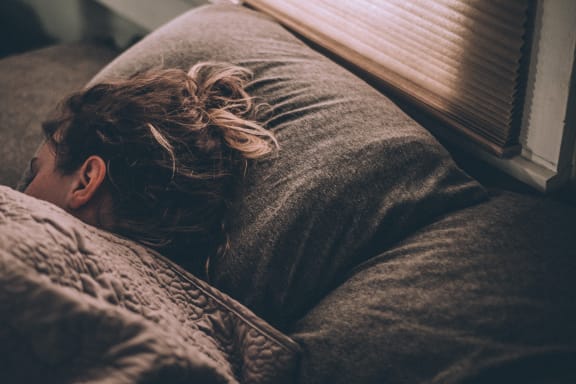If you struggle to get a solid night’s rest, you know first-hand that the consequences of sleeplessness are not only frustrating, but also lasting. Poor sleep doesn’t just lead to dark under-eye circles and irritability the next morning — inadequate sleep can also negatively impact your overall health, your cognitive health, your ability to function in daily tasks and your emotional state, just to name a few.
But good news if you’re one of more than 50 million people in the US who struggles with a sleep disorder, or if you’re just plain old tired and not getting enough Z’s: eating more wild seafood might help improve your sleep.
Omega-3 Fatty Acids May Be the Key to Improved Sleep
Omega-3 fatty acids are powerful nutrients with the ability to boost our health in a number of ways, from fighting depression to reduced inflammation, improving brain function and combating the risks of heart disease. But these fatty acids may also positively impact your quality and duration of sleep.
There has been a lot of scientific research in recent years investigating the connection between fatty acids and sleep, and you can expect to hear a lot more about this topic as more clinical trials and studies are conducted as a part of this growing body of research. Here’s what we know so far:
A 2014 study published in the Journal of Sleep Research looked at the effects of fatty acids on sleep disturbance and quality of sleep among children in the UK. The researchers found that higher quantities of DHA (docosahexaenoic acid, one of the omega-3 fatty acids found in wild salmon) in the subjects’ blood, compared to those who took a placebo, may be connected to better sleep among children.
A more recent study connected DHA intake with better sleep quality among healthy young adults, and indicated that EPA might be important in regulating how much sleep is optimal for our bodies.
Another study published the same year in the Journal of Clinical Sleep Medicine examined sleep habits and sleep quality among healthy adults in the US, and found that “fish consumption seemed to have a positive impact on sleep in general and also on daily functioning,” according to the study results.
These adult males consumed fatty fish three times a week for several months. Those who ate fish had significant improvements both in their sleep, and also in their daily functioning post-test.
Your Body Does Not Produce Omega-3 Fatty Acids
According to the Cleveland Clinic, wild caught fish are the best food source of omega-3 fatty acids. While your body produces certain essential nutrients naturally, the only way to boost your supply of omega-3s is to consume them. Your body will not make them, so you must make sure that you maintain a diet rich in these important polyunsaturated fatty acids.
There are 3 different types of omega-3 fatty acids: DHA, AHA and EPA. The best source of AHA are nuts, seeds and vegetable oils, while DHA and EPA are found in high quantities in fish, particularly wild-caught seafood, such as salmon.
Wild Seafood is Also Loaded with Vitamins
In addition to fatty acids, wild seafood is also packed with certain vitamins that could help promote improved sleeping habits and better quality sleep.
Fish is rich in vitamin B6, which are believed to promote the production of sleep hormones in conjunction with high levels of DHA. Just like so many bodily functions and health habits, hormones have a lot to do with how you fall asleep, how you stay asleep and the quality of that sleep. Vitamin B6 can help your body produce melatonin, which is important in helping regulate your internal clock and your sleep.
According to Michael J Breus Ph.D. in Psychology Today, “melatonin works with the body’s circadian rhythms to help the body prepare for sleep by sending signals to the body that it is time to rest, helping you relax, diminishing levels of other hormones that stimulate alertness, lowering body temperature and blood pressure.”
Fish also happens to be a great source of vitamin D, and fatty fish in particular are one of the primary dietary sources of this essential vitamin. According to researchers in the Journal of Clinical Sleep Medicine, “sufficient vitamin D status and high [heart rate variability] seemed to be positively related to the beneficial effects of fatty fish on sleep quality.”
Bottom line: if you are looking to improve your sleep habits, fall asleep more efficiently and soundly, improve your body’s ability to rest and generally boost your health, try eating more wild-caught seafood.






